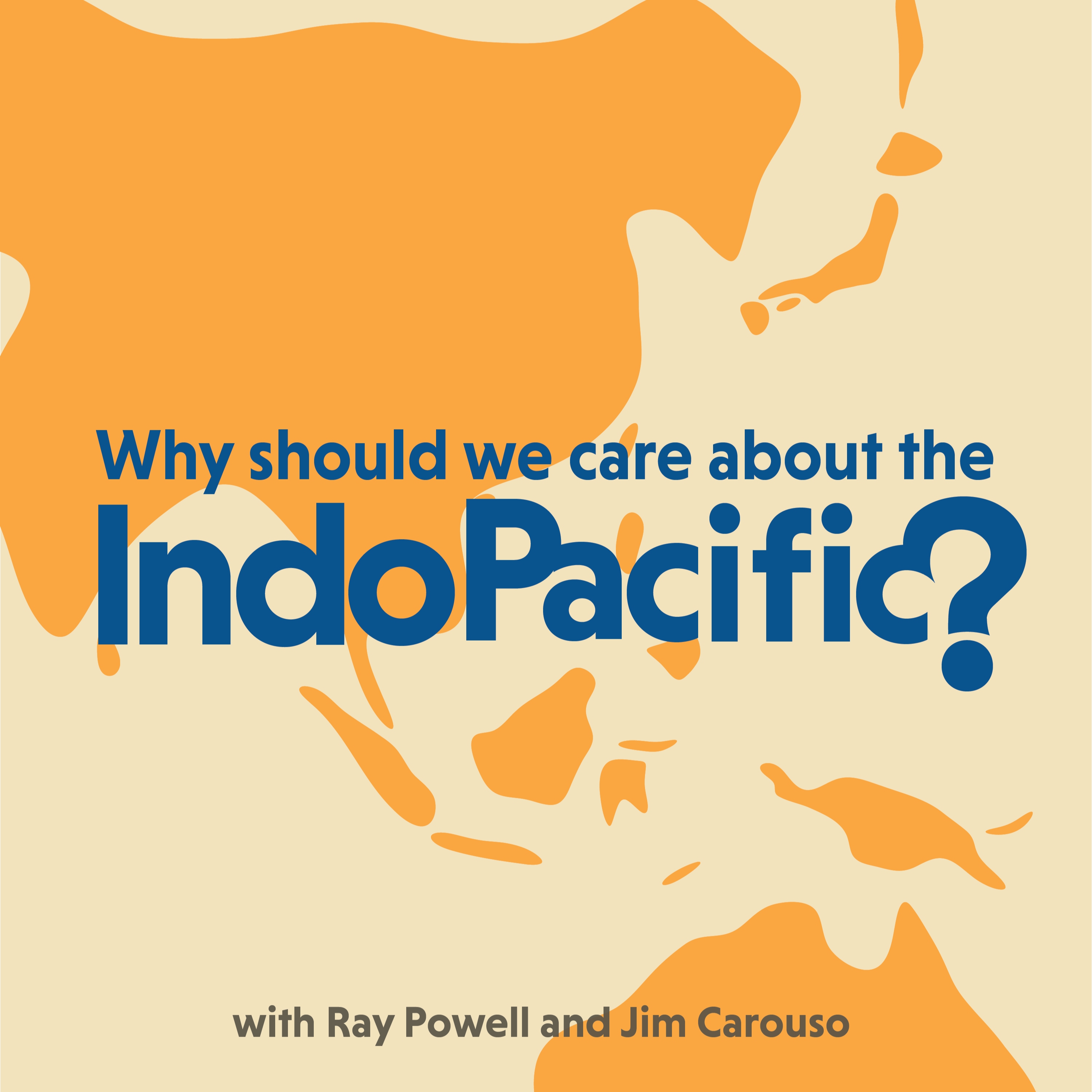
Why Should We Care About a US-Japan-Australia-Philippines Defense Pact? | with Dr. Ely Ratner

Why Should We Care About the Indo-Pacific?
Deep Dive
Shownotes Transcript
In this compelling episode, Dr. Ely Ratner), former U.S. Assistant Secretary of Defense for Indo-Pacific Security Affairs, sits down with Ray and Jim to discuss his provocative Foreign Affairs essay "The Case for a Pacific Defense Pact)."
Dr. Ratner argues that China's rapid military modernization and regional ambitions necessitate a fundamental shift from America's traditional "hub-and-spoke" bilateral alliance system to an integrated multilateral defense pact. His proposal centers on creating a collective defense arrangement between the U.S., Japan, Australia, and the Philippines—not a pan-regional "Asian NATO," but a focused alliance among strategically aligned nations.
Unlike failed attempts in the 1950s-60s (SEATO), today's conditions are uniquely favorable. These four countries share unprecedented strategic alignment, advanced military capabilities, and growing intra-Asian cooperation. The Philippines has become "ground zero" for regional security, with China's illegal actions in the West Philippine Sea galvanizing allied support.
Ratner tackles key criticisms head-on: Would Australia really fight over South China Sea disputes? He points to Australia's strategic awakening, with China conducting live-fire exercises requiring Australian airspace closures. Regarding U.S. reliability concerns, he notes that Indo-Pacific defense policy has remained consistent across administrations, unlike NATO rhetoric.
The conversation explores practical hurdles, including Senate ratification requirements, domestic politics in allied nations, and the risk of provoking China. Ratner suggests much operational integration could proceed through executive agreements, building on existing frameworks like AUKUS and the Quad.
A central theme addresses the tension between deterrence and provocation. Ratner argues that maintaining the status quo would embolden Chinese ambitions, making conflict more likely. While a formal alliance may raise short-term tensions, it's ultimately stabilizing by making aggression prohibitively costly.
The discussion covers how ASEAN and India might respond. Ratner emphasizes the alliance would complement, not compete with, existing institutions. ASEAN would retain its convening role, while India could continue bilateral cooperation with the U.S. without joining the pact.
Addressing Secretary Hegseth's push for increased allied defense spending, Ratner advocates a holistic view beyond just budget percentages—including access, basing rights, and operational contributions. He stresses the need for political space in allied capitals to justify deeper U.S. ties.
Ratner describes 2021-2025 as a transitional period, moving from dialogue to unprecedented action. Recent initiatives have laid groundwork for deeper integration, with allies willing to take steps previously unimaginable.
Key Takeaways:
China's military rise demands integrated allied response
Strategic alignment among U.S., Japan, Australia, Philippines is unprecedented
Collective defense would create mutual obligations beyond current bilateral treaties
Implementation faces political challenges but operational foundations already exist
Deterrence goal: prevent conflict by raising costs of aggression
Dr. Ratner concludes that preventing Chinese regional hegemony requires "big ideas" and political heavy lifting. The window for action is now, before China achieves its revisionist ambitions.
Follow Dr. Ratner's work at The Marathon Initiative)